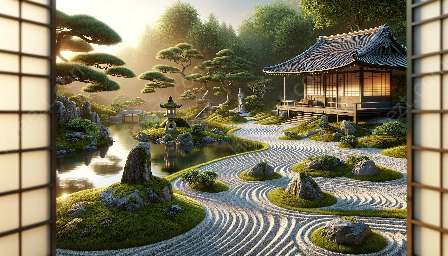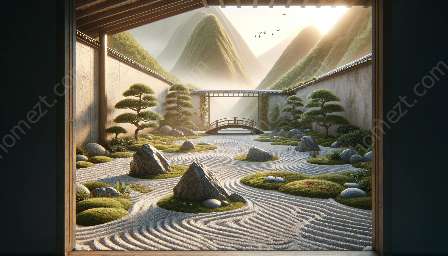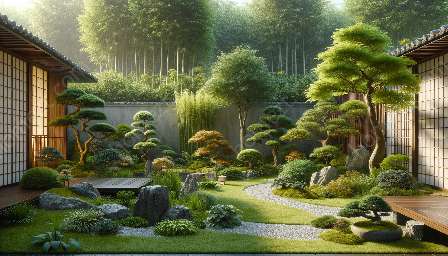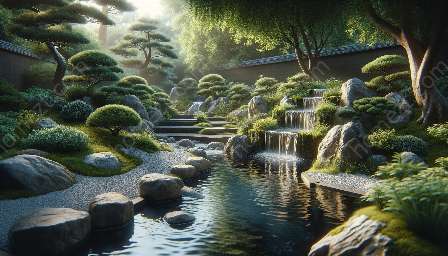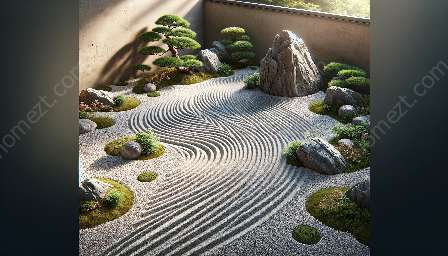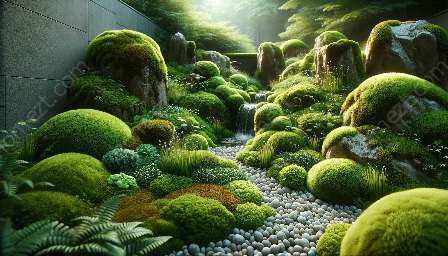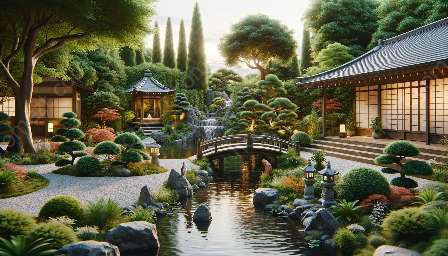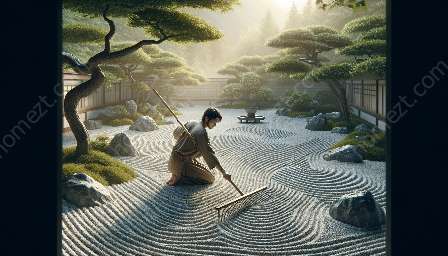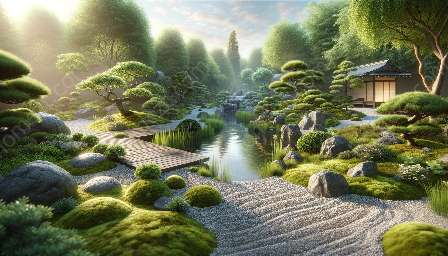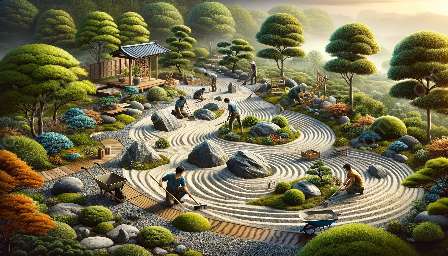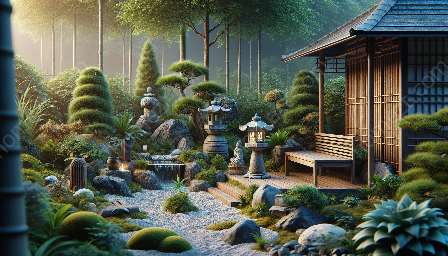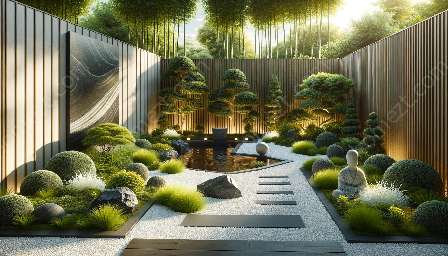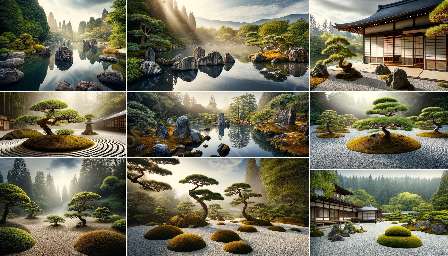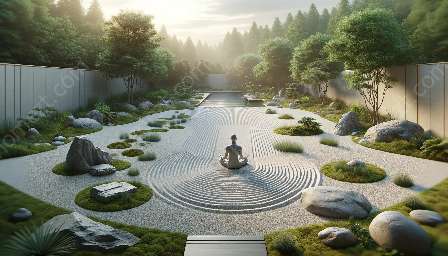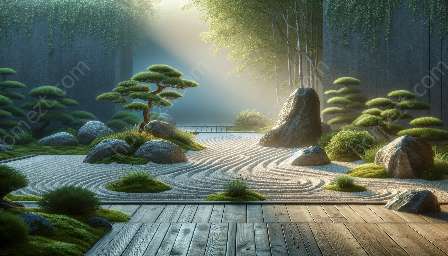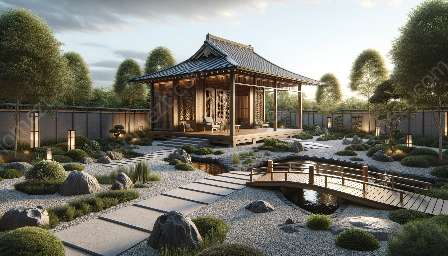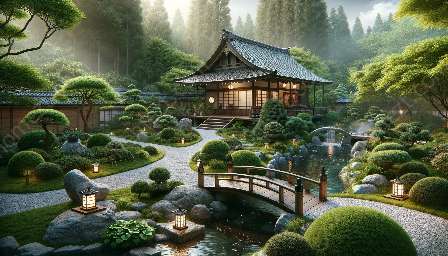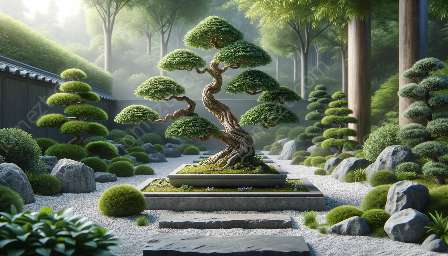Contemporary Zen garden designs embody the essence of tranquility and simplicity, offering a harmonious space that fosters inner peace and reflection. In this comprehensive guide, we will delve into the principles, elements, and distinct features of contemporary Zen gardens, exploring how they can be integrated into modern landscaping and gardening practices.
The Essence of Zen Gardens
Zen gardens, also known as Japanese rock gardens or dry landscape gardens, originated in Japan as spaces for meditation and spiritual contemplation. Rooted in Zen Buddhism, these gardens are designed to evoke a sense of calm and enlightenment through a minimalistic and symbolic approach.
Principles of Contemporary Zen Garden Designs
Contemporary Zen garden designs adhere to several key principles that emphasize simplicity, harmony, and natural beauty. These principles guide the creation of serene outdoor spaces that promote relaxation and mindfulness:
- Simplicity: The essence of Zen design lies in its simplicity, with minimalistic elements and a focus on clean lines and uncluttered spaces. Every component serves a deliberate purpose and contributes to the overall harmony of the garden.
- Natural Elements: Zen gardens often incorporate natural elements such as rocks, gravel, sand, and moss to emulate the essence of nature in a controlled and stylized manner. These elements represent mountains, water, and islands, encouraging contemplation of the natural world.
- Balance and Harmony: An essential aspect of Zen philosophy, balance and harmony are central to the design and arrangement of the garden. The careful placement of elements creates a sense of equilibrium and tranquility, evoking a feeling of peaceful coexistence.
- Symbolism: Symbolic representations, such as raked gravel to simulate ripples in water or rocks positioned to symbolize islands, convey deeper meanings and invite introspection and meditation.
Elements of Contemporary Zen Garden Designs
Contemporary Zen gardens encompass a variety of elements, each chosen to evoke a specific ambiance and contribute to the overall Zen aesthetic. These elements include:
- Rocks and Gravel: Carefully selected rocks and gravel are fundamental to Zen garden design, with rocks symbolizing islands and gravel representing water, enhancing the metaphorical landscape.
- Plantings: While traditional Zen gardens tend to minimize plantings, contemporary designs may incorporate select plants such as moss, bamboo, and evergreens to bring subtle greenery and natural textures to the space.
- Water Features: In some contemporary Zen gardens, water features such as small ponds or fountains may be integrated to introduce the soothing sound and reflective qualities of water, further enhancing the garden's ambience.
- Pathways and Bridges: Thoughtfully designed pathways and bridges create a sense of journey and exploration within the garden, guiding visitors through the space while encouraging mindful contemplation.
- Minimalistic Structures: Simple wooden structures, such as benches or pergolas, can provide quiet resting spots and enhance the functional and aesthetic aspects of the garden.
Integration into Modern Landscaping
While traditional Zen gardens were typically confined to temple grounds, contemporary interpretations allow for their integration into residential and commercial landscapes. Modern Zen garden designs often blend traditional elements with innovative twists to create harmonious, meditative spaces that align with contemporary lifestyles.
The Art of Zen Gardening and Landscaping
Merging the principles of Zen gardening with broader landscaping techniques requires a thoughtful approach to spatial planning, material selection, and design execution. By carefully balancing nature, simplicity, and symbolism, landscape designers and gardening enthusiasts can create contemporary Zen gardens that enrich the outdoor environment and nurture the spirit.
Incorporating Zen Principles into Your Outdoor Space
Whether you have a sprawling backyard or a compact urban garden, integrating the principles of Zen design can enhance the beauty and tranquility of your outdoor space. Embracing the spirit of contemporary Zen garden designs allows for the creation of serene and contemplative atmospheres that inspire a sense of inner peace amidst the chaos of modern life.

